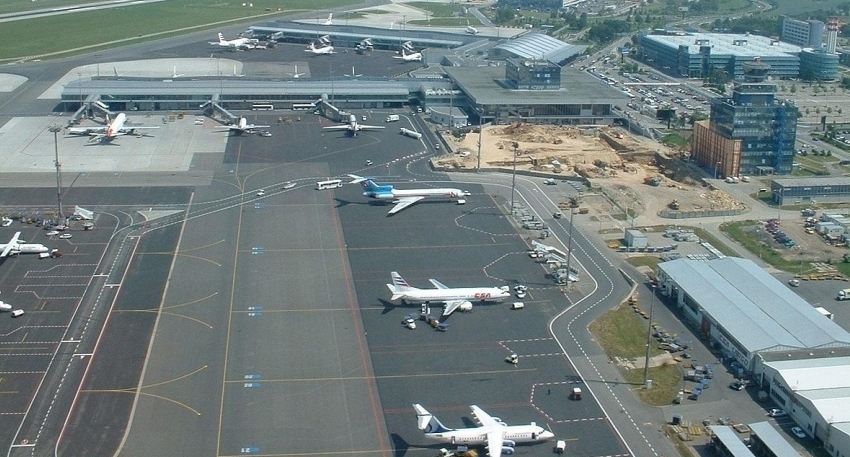$4 bn revenue loss for African airlines; IATA calls for immediate action from governments
The International Air Transport Association (IATA) strengthened its call for urgent action from governments in Africa and the Middle East to provide financial relief to airlines.

April 02, 2020: The International Air Transport Association (IATA) strengthened its call for urgent action from governments in Africa and the Middle East to provide financial relief to airlines as the latest IATA scenario for potential revenue loss by carriers in Africa and the Middle East reached $23 billion ($19 billion in the Middle East and $4 billion in Africa). This translates into a drop of industry revenues of 32 percent for Africa and 39 percent for the Middle East for 2020 as compared to 2019.
Some of the impacts at the national level include:
- South Africa: 10.7 million fewer passengers resulting in a $2.29 billion revenue loss, risking 186,850 jobs and $3.8 billion in contribution to South Africa’s economy.
- Nigeria: 3.5 million fewer passengers resulting in a $ 0.76 billion revenue loss, risking 91,380 jobs and $0.65 billion in contribution to Nigeria’s economy.
- Ethiopia: 1.6 million fewer passengers resulting in a $0.3billion revenue loss, risking 327,062 jobs and $1.2 billion in contribution to Ethiopia’s economy.
- Kenya: 2.5 million fewer passengers resulting in a $0.54 billion revenue loss, risking 137,965 jobs and $1.1 billion in contribution to Kenya’s economy.
- Egypt: 9.5 million fewer passengers resulting in a $1.6 billion revenue loss, risking almost 205,560 jobs and around $2.4 billion in contribution to the Egyptian economy.
- Qatar: 3.6 million fewer passengers resulting in a $1.32 billion revenue loss, risking 53,640 jobs and $2.1billion in contribution to Qatar’s economy.
- Jordan: 2.8 million fewer passengers resulting in a $0.5 billion revenue loss, risking 26,400 jobs and $0.8 billion in contribution to Jordan’s economy.
- Saudi Arabia: 26.7 million fewer passengers resulting in a $5.61billion revenue loss, risking 217,570 jobs and $13.6 billion in contribution to Saudi Arabia’s economy.
- UAE: 23.8 million fewer passengers resulting in a $5.36 billion revenue loss, risking 287,863 jobs and $17.7 billion in contribution to the UAE’s economy.
To minimise the broad damage that these losses would have across the African and Middle East economies, it is vital that governments step up their efforts to aid the industry. Many governments in the region have committed to providing relief from the effect of Covid-19. And some have already taken direct action to support aviation including the United Arab Emirates (UAE) and Qatar. But more help is needed. IATA is calling for a mixture of - direct financial support; loans, loan guarantees and support for the corporate bond market; and tax relief.
Latest impact estimates, selected Africa, Middle East countries | |||||||||||||||||||||||||||||||||||||||||||||||||||||||||||||||||||||||||||||||||||||
|
We are also starting to see several governments in the region providing some financial and tax reliefs, including deferral of aircraft lease payments by the government of Cabo Verde, the extension of VAT refund payment dates in Saudi Arabia and positive considerations for financial relief from governments across the region including Jordan, Rwanda, Angola, and the UAE.
“The air transport industry is an economic engine, supporting up to 8.6 million jobs across Africa and the Middle East and $186 billion in GDP. Every job created in the aviation industry supports another 24 jobs in the wider economy. Governments must recognise the vital importance of the air transport industry, and that support is urgently needed. Airlines are fighting for survival in every corner of the world. Travel restrictions and evaporating demand mean that, aside from cargo, there is almost no passenger business. Failure by Governments to act now will make this crisis longer and more painful. Airlines have demonstrated their value in economic and social development in Africa and the Middle East and governments need to prioritize them in rescue packages. Healthy airlines will be essential to jump-start the Middle East and global economies post-crisis,” said Muhammad Al Bakri, IATA’s regional vice president for Africa and the Middle East.
In addition to financial support, IATA called for regulators to support the industry. Key priorities in Africa and the Middle East include:
- Providing a package of measures to ensure air cargo operations, including fast track procedures to obtain overflight and landing permits, exempting flight crew members from 14-day quarantine, and removing economic impediments (overflight charges, parking fees, and slot restrictions).
- Providing financial relief on Airport and Air Traffic Control (ATC) charges and taxes
- Ensuring aeronautical information is published, timely, accurately, and without ambiguity, ensuring the airlines can plan and execute their flights
“Some regulators are taking positive action. We are grateful to the Ghana, Morocco, the UAE, Saudi Arabic and South Africa for agreeing a full-season waiver to the slot use rule. This will enable airlines and airports greater flexibility for this season and greater certainty for summer. But there is more to do on the regulatory front. Governments need to recognize that we are in a crisis,” said Al Bakri.


